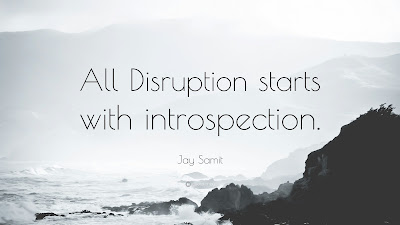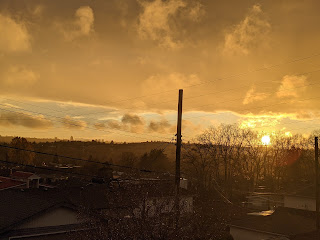Introspection on Power, Politics and Planning
Introspection is the process of observing on how one’s thoughts, feelings, motives, reasoning process and states determine our behaviour. - Nunan (1992)
The overarching theme of this course is on change processes, program planning, practitioner inquiry and action research. It has a political edge, looking at the sources of and responses to power and influence. It is preparation for our final capstone project, and poses some very interesting questions, that allow for reflection, critique and analysis of my current profession where I have worked as a certified program planner and program coordinator since 2008. To be a program planner is to design curriculum, write proposals, balance budgets, manage and train staff, address student concerns and feedback, build relationships, and write and evaluate program objectives and learning outcomes. There are many details to attend to that require in-depth subject matter knowledge and expertise. In addition, there are ethical decisions to attend to that require peer feedback, policy overview, and enforcement.There are many variables to consider with each decision, as we work as change agents on a daily basis.
What I appreciate about my job is that I get to plan programs in the field of holistic health and Yoga. I am very passionate about the education of preventative and complementary healthcare practices. I am also part of the continuing education department, where we have more freedom in our job that allows for creativity, rather than being mandated on what we have to teach. I have been able to turn my passion and love for classical Yoga into a profession that is making a difference in the lives of others. I feel good each day knowing that I am contributing to the mental and physical health and well being of a select group of people in our society.
What does power mean to me? I believe in personal power. When we are empowered to take care of our individual health, we can make positive societal change. Our negative thoughts and self-limiting beliefs are often rooted in our personal history and story. If we have not faced, resolved and healed past traumas, it is difficult to move forward in our lives because of the hurt. From a wounded place, blame and anger is placed on others, and projected outwards. Feelings like shame, hate, and fear are very damaging to the psyche, and can cause harm to others. One of the most inspirational books I have on this topic is Power vs. Force: The Hidden Determinants of Human Behaviour. It measures frequency of consciousness and emotions, and from a psychological point of view explores how we can move from shame and guilt to love, joy and peace.
I like to challenge the status quo and seek life changing solutions. In our textbook, Planning Programs for Adult Learners, there is a section that discusses the "radical approach to program planning with its focus on social activism, democratic principles, and transformation..(Beard, 2003)." I like the idea of self-transformation in education as being a radical approach. Practices like meditation and yoga, invite us to inquire within and explore the root causes of our suffering and pain. When I am mindful of my own thoughts, feelings and actions, I can start to make a positive difference. How often in our lives, do we give our power away to others through the mainstream medical, political and educational system, thinking they are in control of us. When we are able to take back our personal power, we can make lasting change.
This is why reconciliation, healing and forgiveness is very important for lasting change to take place. I remember being taught once by a therapist that my job was not to forgive the other alone, but to learn radical self-forgiveness and love myself. If we look to our past, our history, our ancestors tells us a story, about who we are and where we came from. As we honour and learn from our ancestors, we can begin to heal our lives in the present moment, and look to future generations to be the change this is needed to turn this world around. This is why I deeply value Eastern and Indigenous Ways of Knowing, as they show us a way to care for ourselves and others from a balanced place. The circle represents wholeness and continued lifelong learning in a cyclical rather than a linear pattern. It addresses the needs of the entire person - mind, body and spirit. Moving forward, I would like to learn more about the Medicine Wheel as well as the Holistic Model of Health. Below is an example of how to create learning outcomes based on Indigenous wisdom, that I would like to incorporate into my program and research.




Comments
Post a Comment